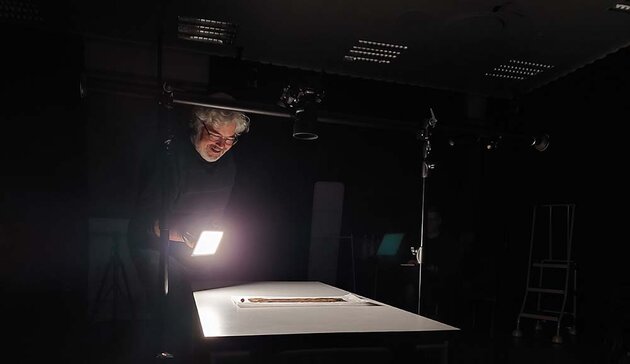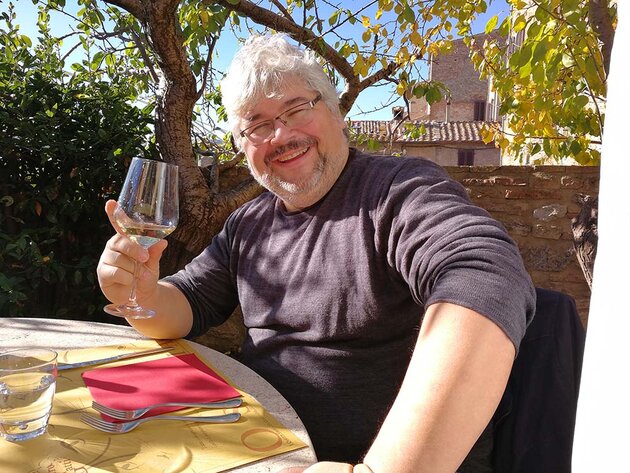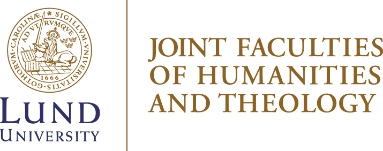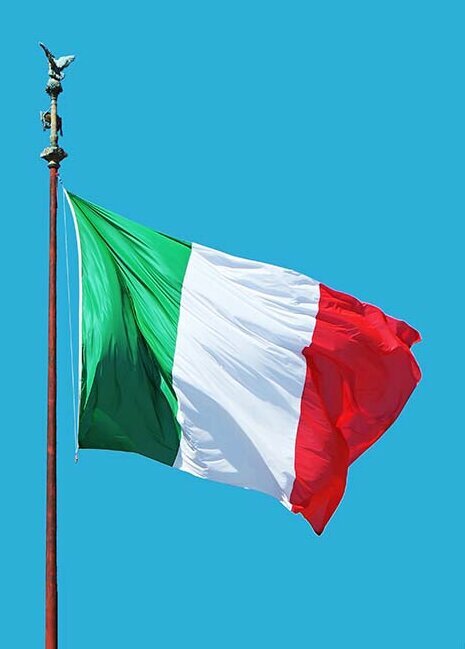Stefan Lindgren
Joint Faculties of Humanities and Theology
Do not get overwhelmed by the application process, and make sure your hosts have time for you. These are the most important tips from Stefan, who travels a lot as part of his job.

Hello Stefan. You work in the Humanities Lab. What is your role there?
I work as a research engineer and try to help researchers who want to use 3D technology in their projects. This may involve documentation, analysis or visualisation in 3D, but is usually a mixture of all the different elements.
You have travelled a lot as part of your job. Among other things, you have completed Erasmus+ staff mobility placements in Pisa and Rome. Tell us more about these two trips!
We have collaborations with experts around the world who are doing things similar to what we do in the Humanities Lab. I often get involved in projects with archaeologists, and in Italy they have come a long way in applying 3D technology in archaeological contexts. Both of these trips were focused on becoming familiar with new techniques and methods in these areas. In Pisa, my colleague Carolina Larsson and I visited CNR-ISTI for a week. CNR is Italy's national research council, which is organised into various departments and institutes. ISTI is the Institute of Information Science and Technologies. Among other things, they have developed open software that is adapted to work with 3D data, and they have a specific focus on cultural heritage. They have also developed various methods to share 3D models directly online. Learning more about this was the main purpose of our visit to Pisa.
In Rome, Carolina and I visited CNR-ITABC, whose English name is the Institute for Technologies Applied to Cultural Heritage. There they have developed many interesting methods, including something called Extended Matrix, which is a system for structuring, storing and visualising all the data used for virtual reconstructions, from archaeological excavation to visualisation of reconstructions in virtual reality systems. We were there for a week to learn as much as possible about this system.
How did you make contacts at the host university?
We reached out to the contacts that we used to initiate these trips, long before we actually made the trips. We have met in different projects or at conferences. This made it easy for us to get in touch with our hosts.
How was it to meet with colleagues in Pisa and Rome? How did the collaboration work?
Since we already knew our hosts, the meetings with our colleagues in Pisa and Rome were more like happy reunions than an initial introduction. In both cases, it was very pleasant and rewarding. Of course, we also got to know several other people who work in these divisions, and these are contacts that have been rewarding long after the trips. We were well looked after, and the collaboration worked very well.
What was most rewarding?
The most rewarding thing is to see and understand how others work and to have an opportunity to discuss different methods with them directly. It is an easier way to communicate than trying to have discussions via email. The new contacts were perhaps the most rewarding, but both trips provided a lot of new concrete knowledge that has been useful long after returning home.
What was most challenging?
I have travelled quite a lot for work, and going to Pisa or Rome is not in any way challenging, at least not in comparison to other trips I've made. So, I can't say there were any real challenges.
Did you have a lot of work to catch up on when you got back home?
Yes, I also have other duties in the Humanities Lab, so there was some catching up to do when I got back. But I had expected that. It's hard to avoid with the position I have.
Was it complicated to apply for and report the Erasmus funds?
No, it was not very complicated. There are very clear instructions online, and when I had questions I got answers quickly by email.
Would you recommend a mobility period abroad to other colleagues?
I would not hesitate for a moment to encourage others to take advantage of this great opportunity to travel somewhere and learn new things.
Do you have any tips for them?
The first tip is to not get overwhelmed by the application procedure. The first time you look at it, it might seem a bit much, but it is not very complicated. The second tip is to make sure that the host university has time for you. It is important to travel at a time when your hosts are not busy with other things. Hosts need to understand that they need to spend some time on your visit. It's a balancing act, of course. I don't mean that they have to keep you busy every minute of your visit, but there should be more involved than giving you a workspace and a network connection and leaving you to fend for yourself.



